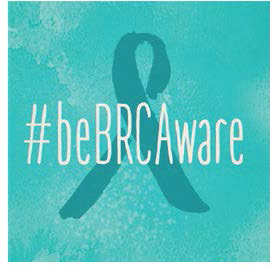I received $150 from AstraZeneca, and any opinions expressed by me are honest and reflect my actual experience. This is a sponsored post for SheSpeaks/AstraZeneca
Ovarian Cancer Awareness Month. This hits home. Any kind of cancer is horrible. I had a grandmother who passed away from Ovarian cancer and also my mom had it at one point too when I was little. I was young but I can recall it being devastating. Since I am not in my 20s. I am very determined to stay here with my family as long as I can. I am planning to get tested for the BRCA gene. BRCA1 and BRCA2 are human genes involved with cell growth, cell division, and cell repair. Although they are most commonly associated with BReast CAncer, approximately 15% of women with ovarian cancer also have BRCA gene mutations.
A blood or saliva sample can be taken at your physician’s office or at a local lab. In the United States, results are usually available in 2 to 3 weeks
BRCA status in ovarian cancer affects treatment outcomes, and there are treatment options available specifically for women with BRCA mutations
Personalized, or precision, medicine tailors treatment to a patient’s genetic profile, and with cancer it means doctors can target the specific mutations that they know drive a disease. This helps patients determine the right treatment options for them. For this reason, it is important for women with ovarian cancer to receive genetic testing so that they can plan with their doctor an individual treatment plan that is optimized for their specific cancer.
For patients with advanced ovarian cancer who have had multiple lines of chemotherapy, the prognosis is poor and treatment options are progressively limited with each additional line of therapy. The American Cancer Society estimates that more than 21,000 new cases of ovarian cancer will be diagnosed in the Unites States in 2015, and that a woman’s risk of developing ovarian cancer is 1 in 73.
For the 60% of ovarian cancer patients whose cancer has spread to other organs by the time of diagnosis, the five-year survival rate is only 27%
Ovarian cancer causes more deaths than any other cancer of the female reproductive system and is often diagnosed late because symptoms mirror everyday ailments.
How can you help?
Help raise awareness for ovarian cancer during the month of September by having conversations with your friends and family members about ovarian cancer and the importance of BRCA testing. Share this post and help spread the word.






Speak Your Mind